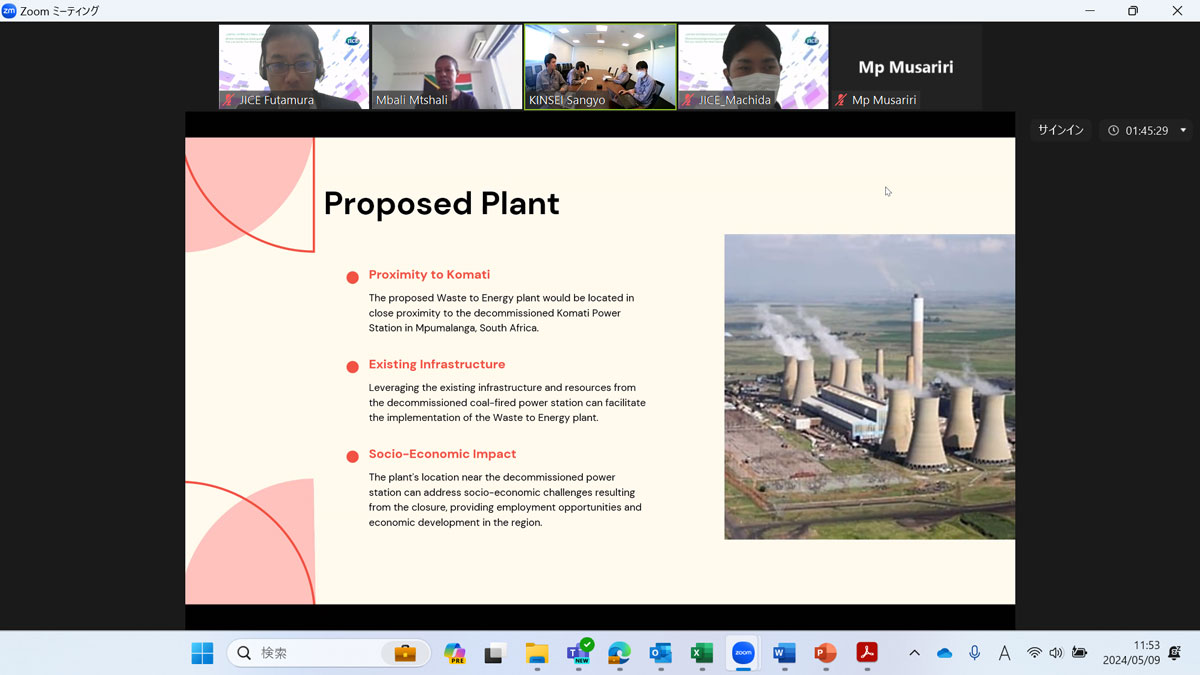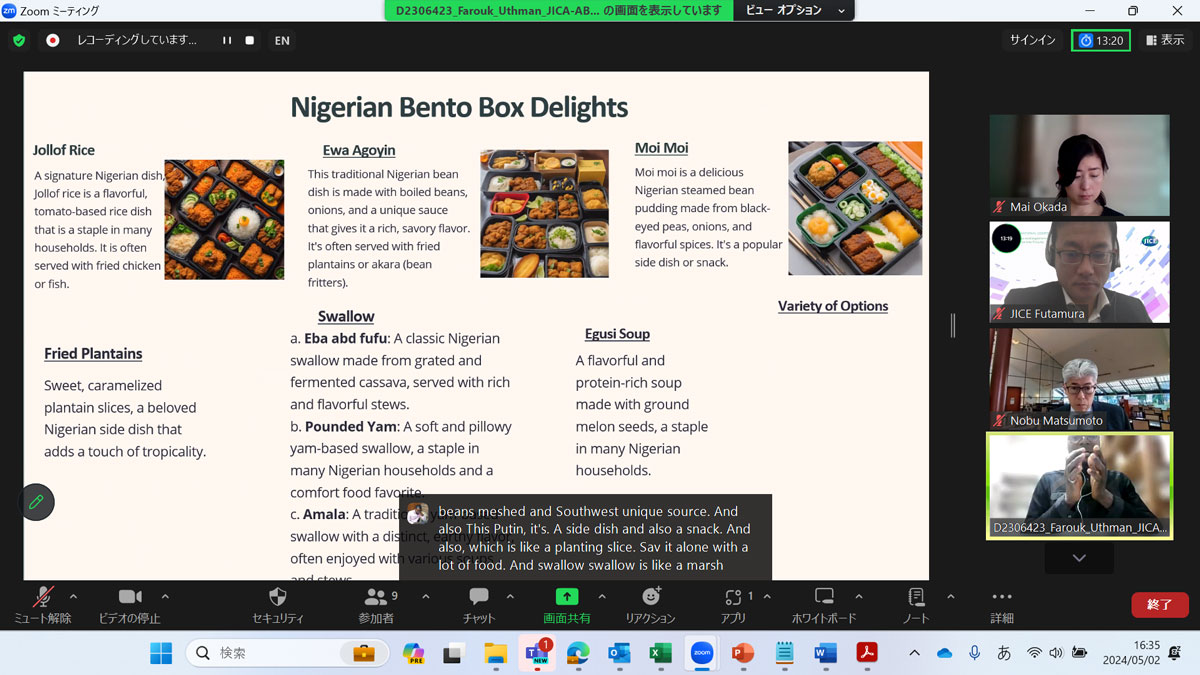ABE Initiative (African Business Education Initiative for Youth), which has been implemented in 2014, provides young Africans with opportunities to study in Japanese graduate schools as well as the opportunity of doing internships at Japanese companies. By providing these opportunities, it aims to develop local human resources sought by Japanese companies doing business in Africa and to discover local human resources who can be active as a bridge between Japan and Africa in the business field in the future, thereby promoting Japan's economic activities in Africa and contributing to the revitalization of the African economy. The purpose of this program is to contribute to the promotion of Japan's economic activities in Africa and to become a bridge between Japan and Africa.
Under the ABE Initiative, we recently conducted a training course on business skills for ABE initiative participants who are currently enrolled in a master's degree program in Japan. The training consisted of online lectures on various theories such as analysis, and business proposal presentations by trainees to companies. 69 ABE initiative participants joined this training, seven Japanese companies and 26 participants joined the business proposal presentations session.
This event was conducted online for 10 days in total.
Day 1 and 2: Business skill training
Day 3: Pitch training
Day 4: Presentation of business model to Japanese companies (7 days to 7 companies)
Day1 and Day 2: Business skill training by external trainer
The first and second day of the business skill training was held on 28th and 29th March by an external trainer. The contents were about logical thinking, PEST analysis, SWOT analysis, STP analysis and BMC creation. The participants analyzed businesses using the aforementioned tools for cases of actual Japanese companies and learned from each other's work. All participants are conducting research in a variety of fields at their graduate school and this training of learning business theories differs from their usual study. It was a good opportunity for them to deepen their own businesses in their home countries after their return.



Day 3:Exercise of business idea presentation
On the third day of the training, participants who wished to make a business proposal to a company practiced presenting their proposals to other participants. The participant gave a presentation about the business they would like to start in their home country by using analytical methods learned on the first and second days of the training. By receiving feedback and comments from the lecturers and other participants, the day became a valuable opportunity to practice presenting their business proposals in a way that would be better conveyed in a business setting. Receiving objective feedback from participants from different countries and specialties added new perspectives to the presentations they had prepared, and helped them to improve the content and accuracy of their business proposals.


Day 4:Business proposals to Japanese companies interested in Africa
On the fourth day of the training, participants presented new business proposals to Japanese companies that are planning to expand their business into African market or have already done so. They received advice and opinions from the companies. The participants were able to receive comments from a wide range of perspectives, including the various resources needed to actually start a business, market size analysis, and study of the actual level of demand in the target African country.
The participating Japanese companies came from a wide range of industries, including manufacturing, IT, logistics, consulting, etc. By hearing opinions based on an actual situation in African countries from people from African countries, the companies were able to have lively discussions about the needs, competition, pricing, etc. of their existing products and services. The meeting provided an opportunity to have lively discussions about the needs, competition, pricing, and other aspects of their existing products and services. Discussing the African market with the participants provided an opportunity for Japanese companies to deepen their knowledge of the African market through mutual communication, which is different from reading about it. It was a meaningful meeting for both sides, as it led to new discoveries about the value that their businesses can offer in African countries.



【Program overview】
Date (all contents in online)
- Day 1 and Day 3: 28th March and 29th March
Learning knowledge and frameworks such as logical thinking, external environment analysis, customer analysis, integrated and in-house analysis, job theory, business model canvas, etc. - Day 3: 13th April
Presentation exercise and feedback from other participants - Day 4: Presentation to 7 companies in seven days from 1st May to 20th
Companies participated (listed in order of date)
And Africa Co., Ltd.
Assentia Holdings, Inc.
DIVIC Corp.
KINSEI SANGYO CO., LTD.
Nippon Biodiesel Fuel Co., Ltd.
Solar World Co., Ltd
Dai Nippon Printing Co., Ltd.
<Targets of this event>
・African Business Education Initiative for Youth (ABE Initiative):
This program targets African youth by providing opportunities for them to obtain master’s degrees from Japanese universities and to participate in internships with Japanese companies. The goal of the ABE Initiative is to support African industry talents and to make those talents serve as “bridges” for guiding Japanese businesses in Africa.




scroll